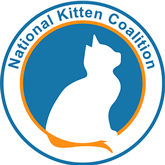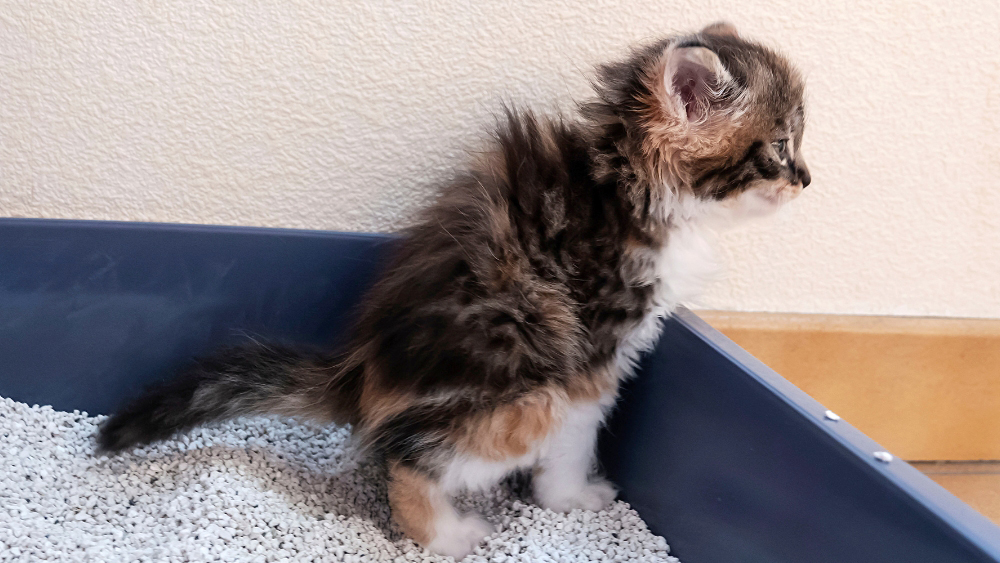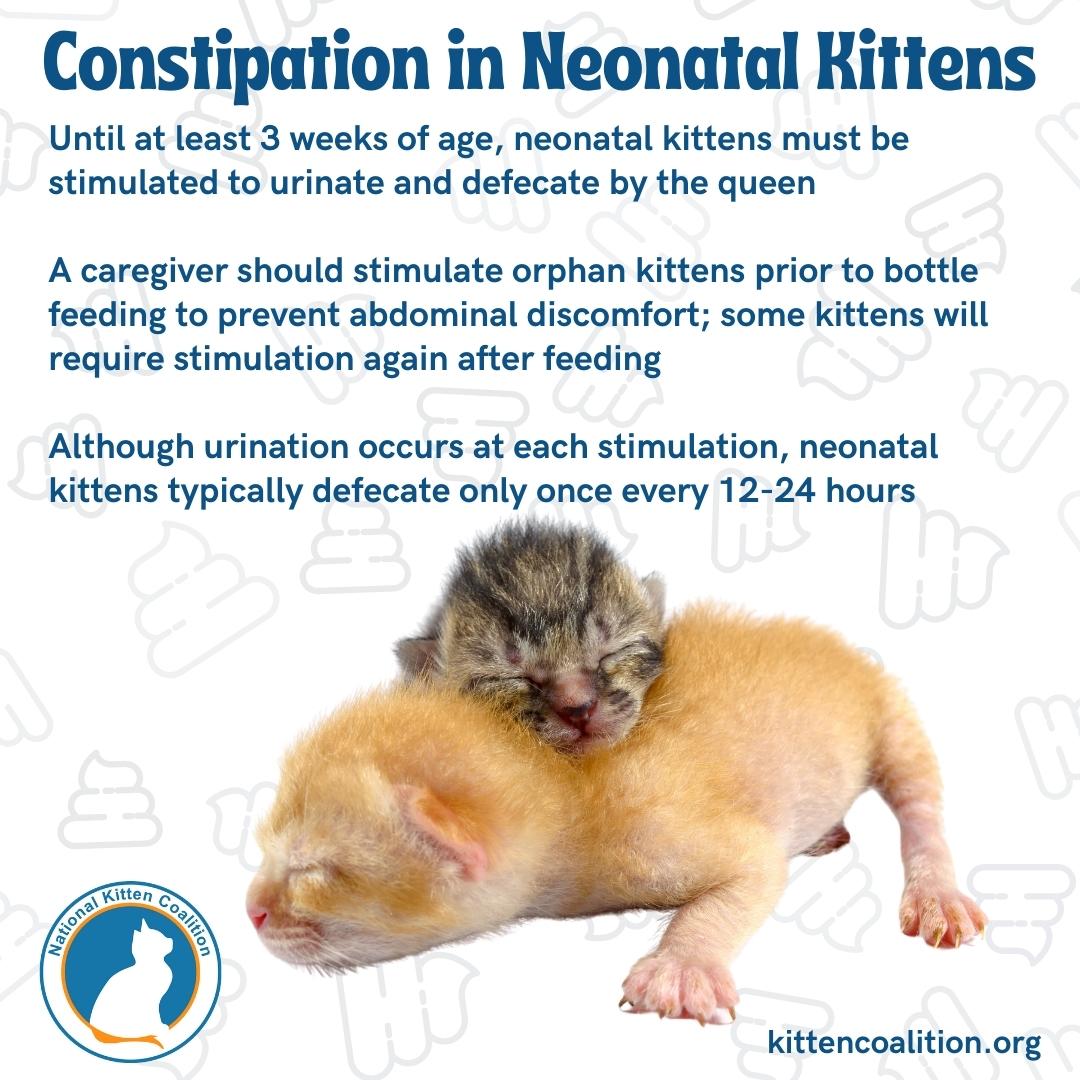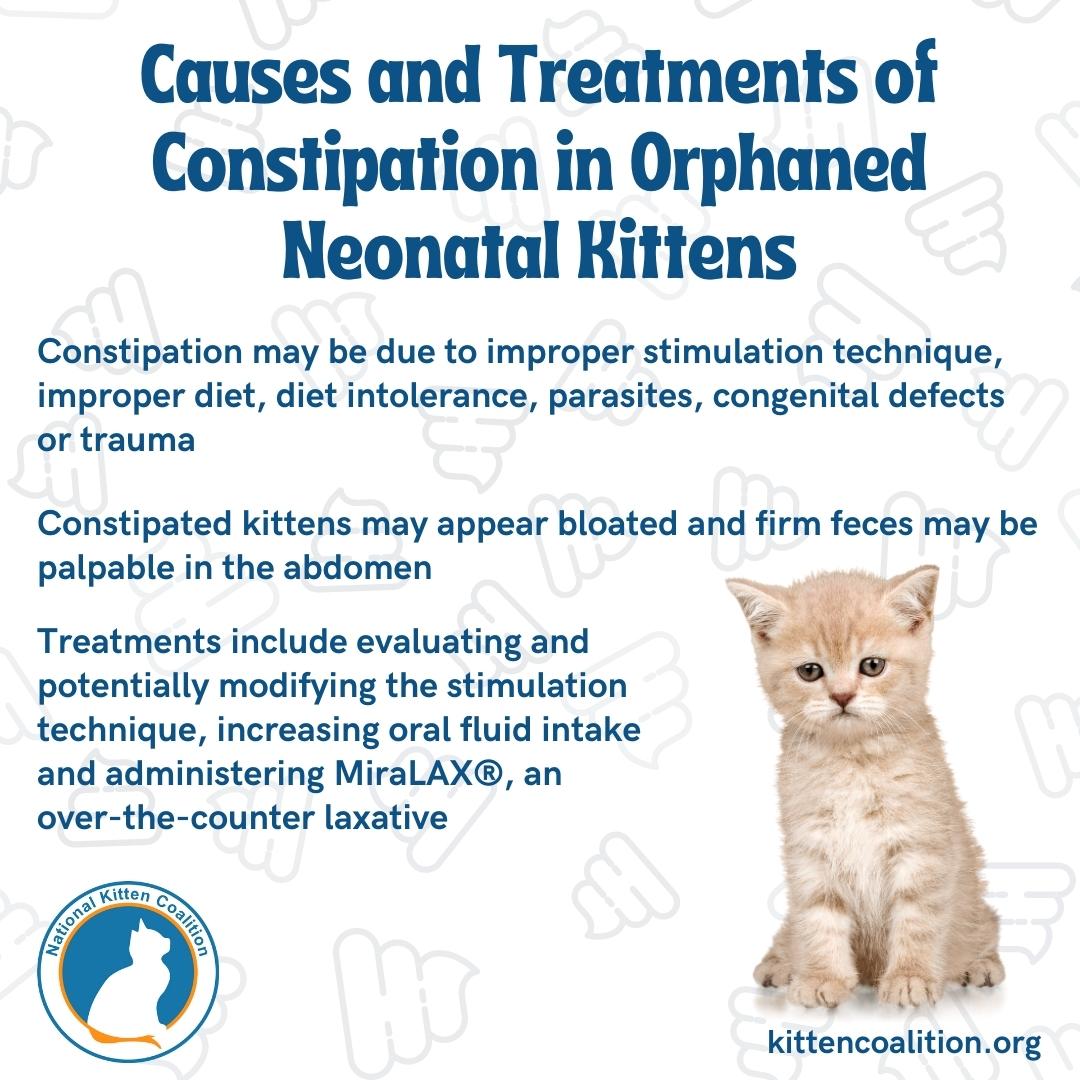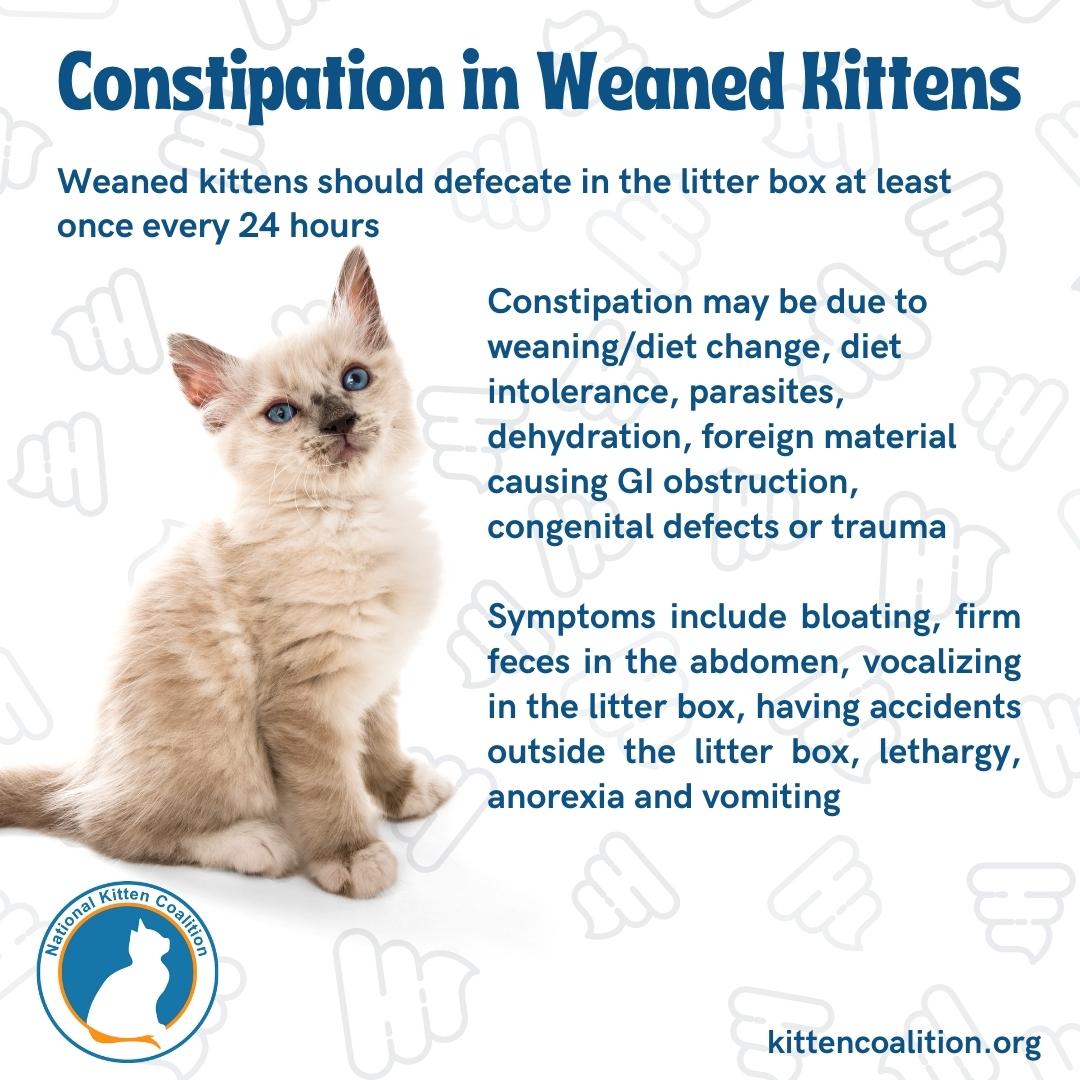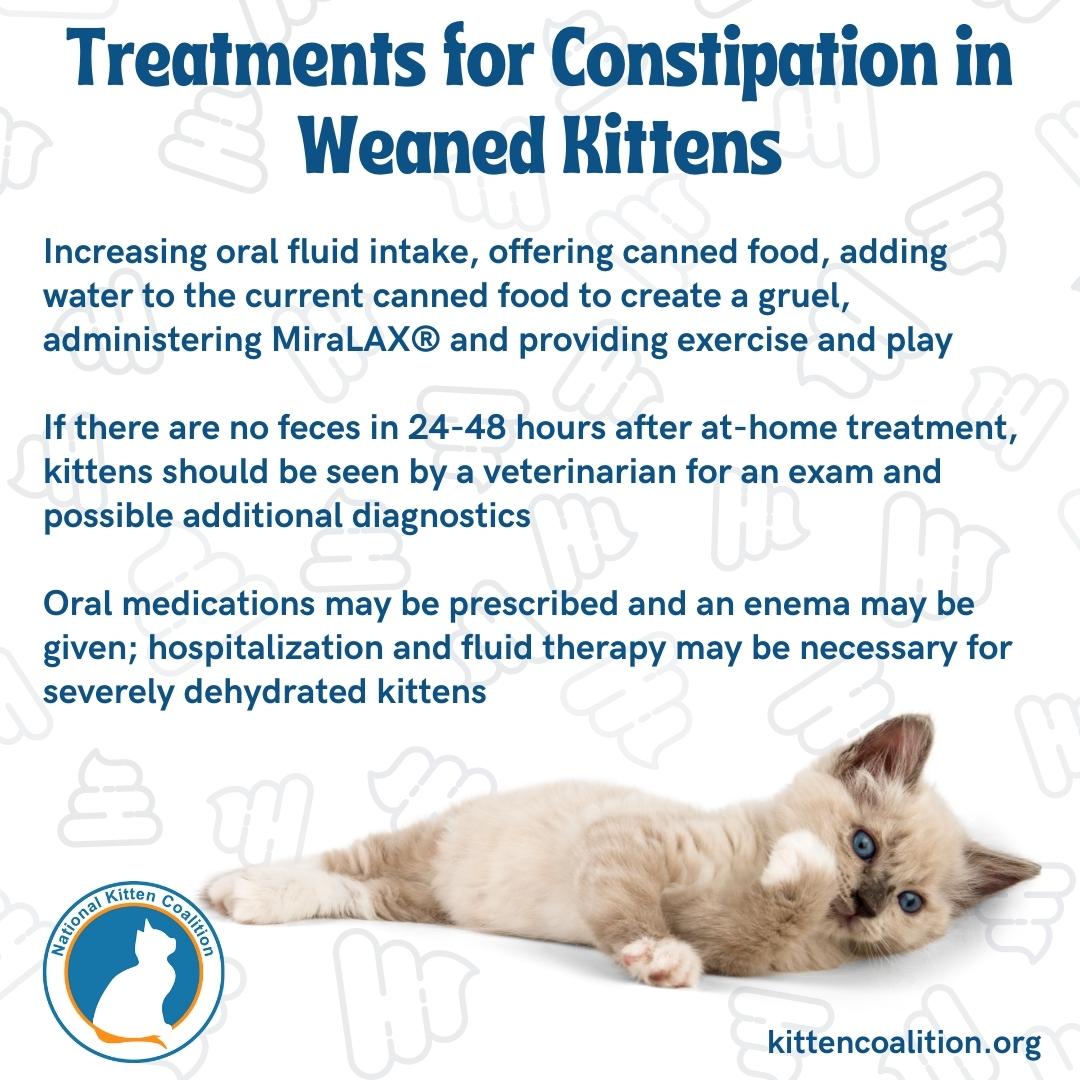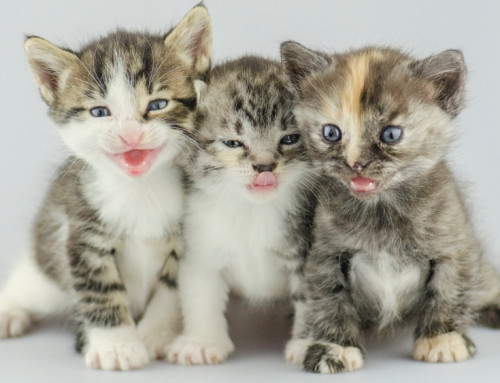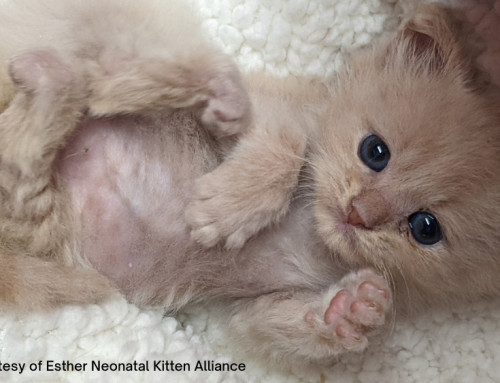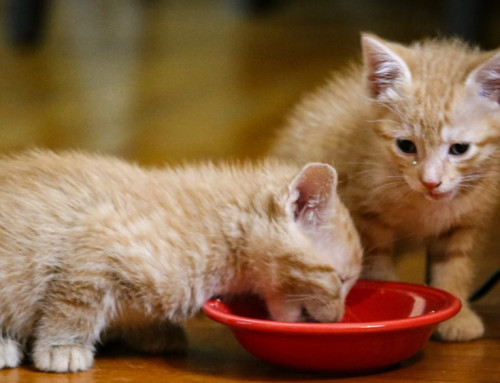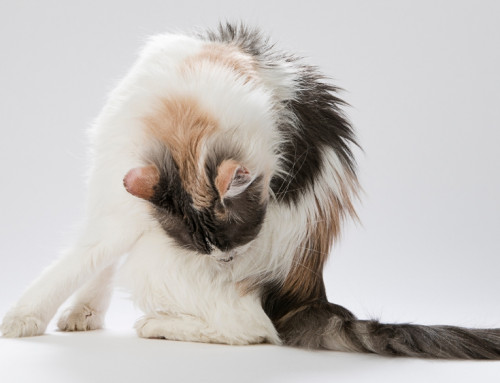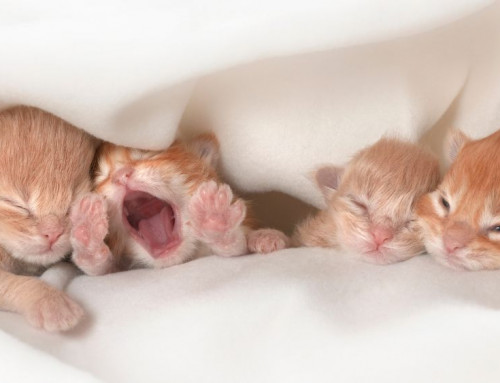Share this resource or email it to a friend!
Constipation is defined as the infrequent, incomplete or difficult defecation with passage of small, hard or dry feces. It is important to address constipation immediately in order to avoid complications. Depending on the age of the kitten, constipation will require a slightly different approach.
Constipation in Neonatal Kittens
Neonatal kittens must be stimulated to urinate and defecate either by the queen or caregiver until they are at least 3 weeks of age. Although urination occurs at each stimulation, a kitten typically defecates only once every 12-24 hours. An orphan kitten caregiver must mimic the queen when stimulating kittens for elimination.
Stimulating Neonatal Kittens to Eliminate
Each kitten is an individual and will respond differently to stimulation techniques, the most common being the use of a wet or dry tissue, cotton ball or cloth to gently pat/rub the perianal area in a circular motion. Stimulation should continue until the bladder and colon are both empty.
Important note: it is a best practice to stimulate for urination and defecation prior to feeding to prevent abdominal discomfort; some kittens will require stimulation again after feeding. For kittens who are difficult to stimulate, the addition of running warm water on to the perianal area during stimulation can be useful.
Common Symptoms and Causes of Constipation in Neonatal Kittens
The most common symptom of constipation in orphan neonatal kittens is infrequent or complete lack of defecation. Constipated kittens may appear bloated and firm feces are typically palpable in the abdomen.This can be due to a variety of reasons, including improper stimulation technique, improper diet or diet intolerance.
When kittens are with the queen, she will ingest all fecal material, making it more difficult to evaluate a kitten for constipation. It is much less likely that kittens nursing a queen will develop constipation, but these kittens should be evaluated daily. A bloated abdomen will be the first indication that a kitten is potentially constipated.
At-home Treatments for Constipation in Neonatal Kittens
Although specific treatments are dependent on the cause of the constipation, there are a few things that caregivers can do immediately prior to seeking veterinary care.
When constipation is observed, the first step is to evaluate and potentially modify the stimulation technique. A technique known as The Triangle Method has been demonstrated to be extremely effective in kittens who do not respond well to other techniques.
The second treatment is to increase oral fluid intake, either by diluting the kitten milk replacer in a 1:3-1:4 ratio instead of the typical 1:2 ratio for a few feedings, or to start oral fluid supplementation separate from and in addition to feedings of kitten milk replacer. The increased water intake will allow the feces to soften and aide in the kitten’s ability to eliminate.
The third treatment is MiraLAX®, an over-the-counter laxative that is extremely safe for use in kittens. In order to prevent kittens from forming food aversion due to an added substance in the formula, it is best to administer MiraLAX® separately from the kitten milk replacer. In addition, due to the small size of neonatal kittens, it is best to dilute a dose of MiraLAX® (17 gram packet of powder) in 8 ounces of water and give incrementally larger amounts per feeding, starting with 0.1 mL/feeding and increasing by 0.1 mL/per subsequent feedings up to 1.0 mL. Although mineral oil and fiber supplements such as pumpkin are often recommended online and are not toxic to kittens, MiraLAX® is considered the safest option by the veterinary medical community.
Constipation in Weaned Kittens
Weaned kittens should have a bowel movement in the litter box at least once every 24 hours. Weaned kittens may become constipated, and it is important for caregivers to monitor each kitten closely, checking weights and overall body condition daily.
Common Symptoms and Causes of Constipation in Weaned Kittens
The most common symptoms of constipation in weaned kittens are infrequent defecation, defecation of small, firm or hard feces in the litter box or complete lack of defecation. Constipated weaned kittens may appear bloated and firm feces may be palpable in the colon. Kittens may vocalize while in the litter box or begin to have accidents outside the litter box. A kitten who is constipated may become lethargic, anorexic or even begin vomiting.
Constipation in weaned kittens can be due to a variety of reasons, including weaning/diet change, diet intolerance, parasites, dehydration, foreign material such as hair ties or pieces of toys causing GI obstruction, congenital defects or even trauma.
At-homeTreatments for Constipation in Weaned Kittens
Although specific treatments are dependent on the cause of the constipation, there are a few things that a caregiver can do prior to seeking veterinary care. The first treatment is to increase oral fluid intake, either by supplementing an electrolyte solution orally, offering canned food, or adding water to the current canned food diet in order to create a gruel. MiraLAX ® is also an option, either as a mixed solution as described above or directly on food. If adding directly to food, it is recommended to give 1/16th of a teaspoon every 12 hours. Proper exercise and play are also important to aide in the ability to defecate.
Veterinary Treatment for Constipation in Weaned Kittens
If at-home treatment for constipation does not result in a bowel movement in 24-48 hours, than evaluation by a veterinarian is recommended. A full physical examination should be performed and further diagnostics, such as imaging (x-rays), rectal exam, fecal testing and blood work may be indicated to evaluate hydration status and organ function. Oral medications such as lactulose, a laxative, or cisapride, a prokinetic (a class of drugs that promote the passage of ingested material in the GI tract), may be prescribed, and, if indicated, enema administration may be initiated. If a kitten is severely dehydrated, hospitalization and fluid therapy may be indicated.
It is important to begin deworming kittens for roundworms and hookworms at 2 weeks of age and to repeat deworming every 2 weeks in order to prevent parasites contributing to constipation.
Although constipation is a common occurrence in kittens, it is most often mild, and, with vigilance and early intervention, a caregiver can easily provide at-home treatment and prevent further complications or even veterinary visits.
